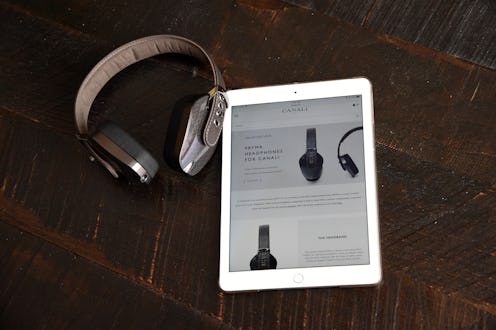News
These Electronics Are Banned On Some Flights

The Transportation Security Administration has banned barring travelers on several foreign airlines from bringing certain electronic devices on U.S.-bound flights. The news was first reported Monday, and the government officially announced the change on early Tuesday. It's not an all-inclusive ban, however, as certain types of devices will still be allowed. So, what electronics are banned on flights to the United States from the airlines in question?
Under the new rules, no electronic devices larger than a cellphone will be allowed. There are two exceptions: cellphones themselves and medical devices. Everything else — laptops, tablets, e-readers, cameras, and any other electronics — will no longer be allowed in carry-on baggage on flights covered under the new policy. They'll have to be placed in checked bags instead.
Of course, this raises the question: What counts as "larger than a cellphone"? After all, cellphones come in many different sizes nowadays, and the biggest ones are around the same size as some of the smaller tablets on the market.
According to NBC News, TSA implemented the ban as an "adjustment based on threat intelligence"; Fox News says that officials had picked up increased "chatter" suggesting that al Qaeda had been trying to figure out new ways to sneak explosives onto airplanes. It's unclear whether this was a response to a generalized threat or a specific terror plot.
In effect, this ban will prevent U.S-bound travelers from certain Middle Eastern and African countries from bringing the aforementioned electronics onto their flights. According to Reuters, it will affect a total of 10 foreign airports.
The ban was first reported on Monday. According to Reuters, it had been in the works for several weeks, and Department of Homeland Security chief John Kelly phoned lawmakers over the weekend to inform them of the impending policy change.
The Trump administration is surely hoping that this new policy stands up better than the last few restrictions it placed on air travel. In January, President Trump signed an executive order prohibiting citizens from seven Muslim-majority countries from entering the United States; this resulted in detainments across the country, mass protests at airports, and, ultimately, a federal appeals court striking the policy down on Constitutional grounds.
Trump fired back with a revised version of the ban, one attempting to pass Constitutional muster. However, it too was blocked by a federal judge, this time hours before it could take effect. Trump says that he'll appeal that ruling to the Supreme Court.